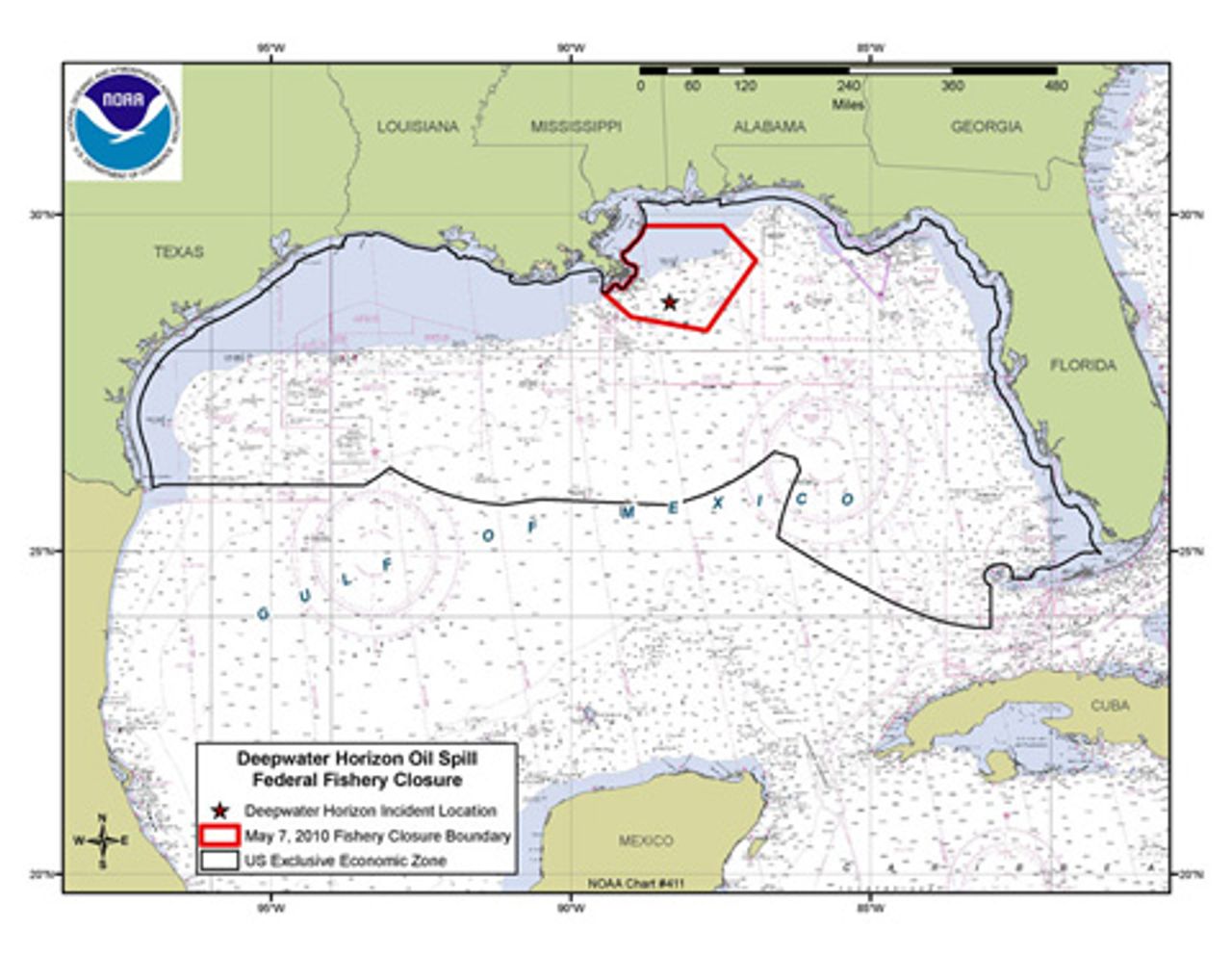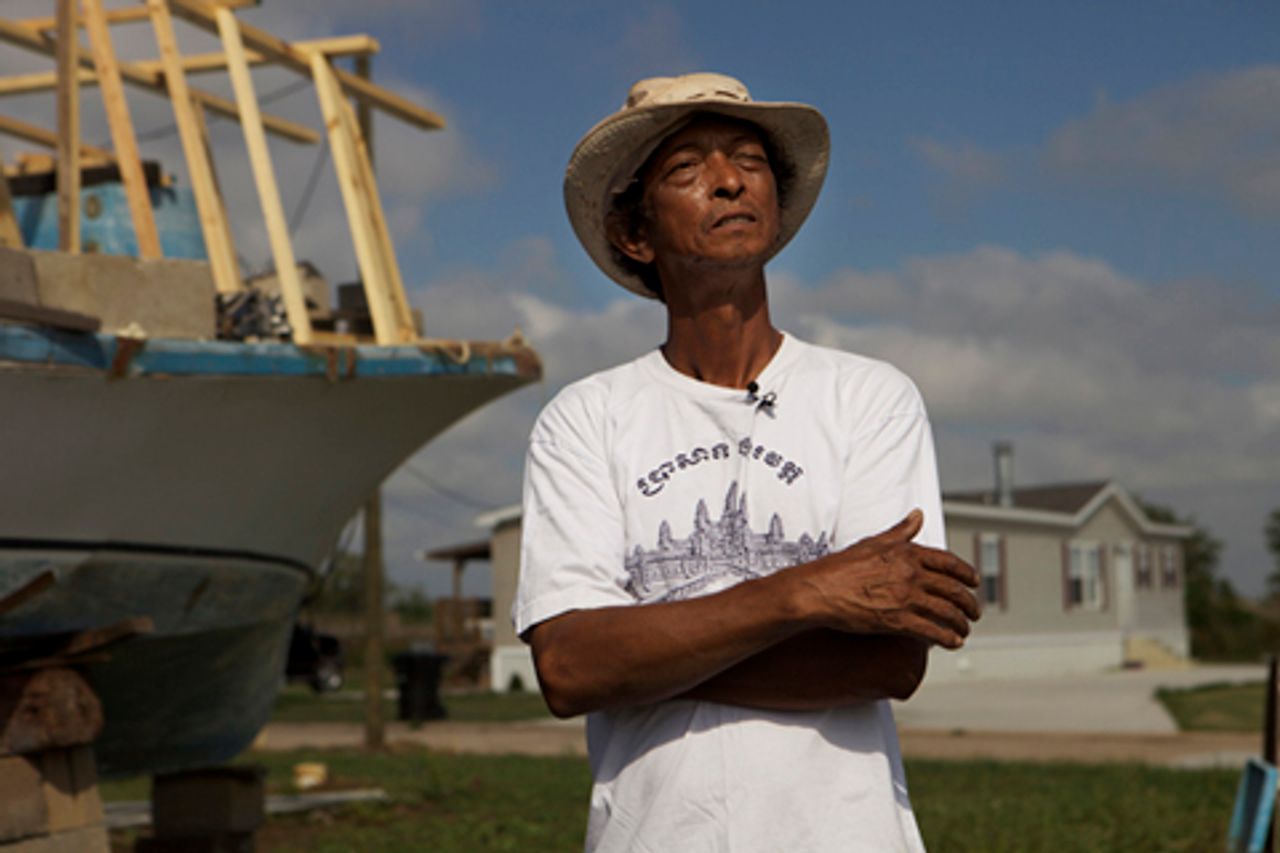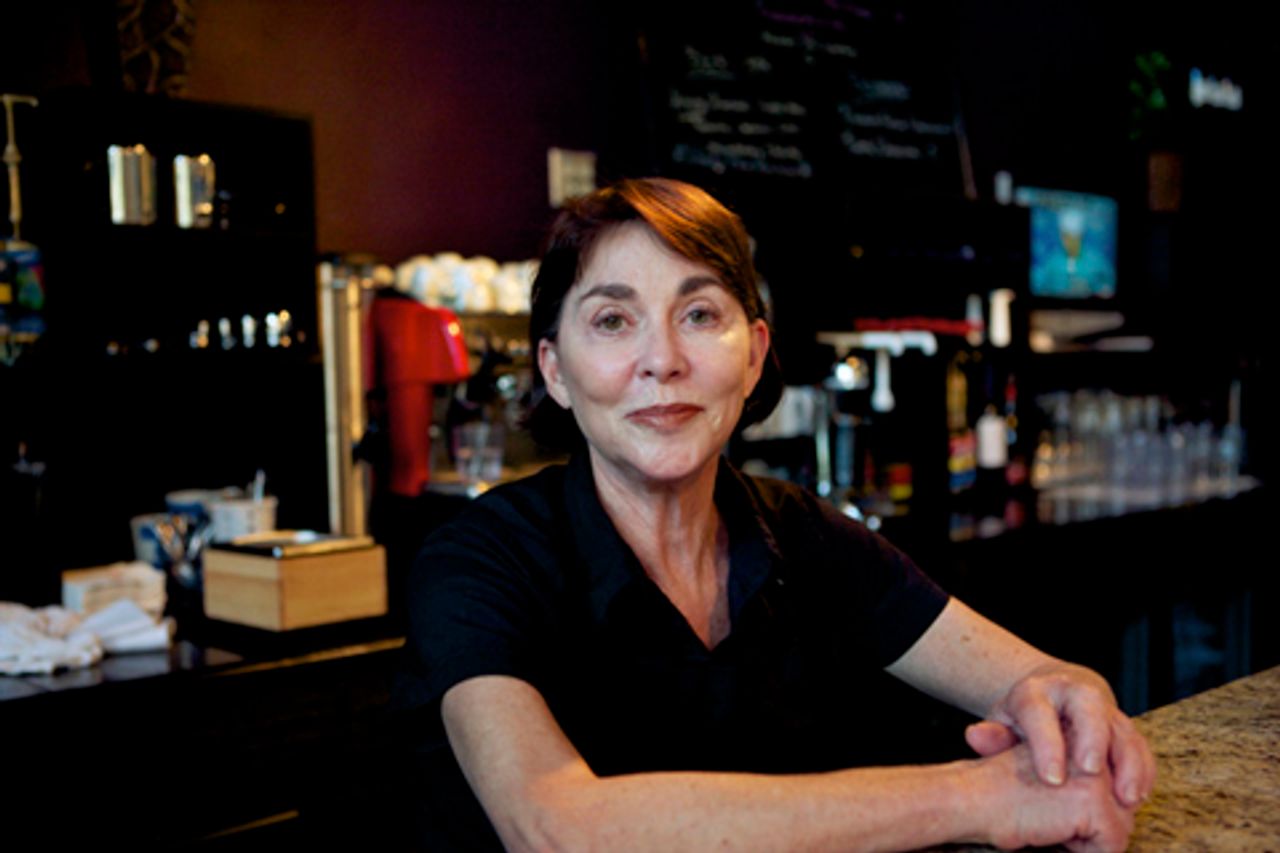The massive and growing oil slick in the Gulf of Mexico will likely devastate the fishing industry in the region, a key component of the overall economy.
On Friday, the National Oceanic and Atmospheric Administration expanded the boundaries of the closed fishing area in response to the growing oil spill. The new area covers a broad swath of Gulf waters off the coast of Louisiana, Mississippi and Alabama.
 Location of Fishing Exclusion Zone (Source NOAA)
Location of Fishing Exclusion Zone (Source NOAA)The decision came as the oil slick hit land on the Chandeleur Islands of Louisiana and was headed toward the mainland of the state. Parts of the slick have also approached the swampy areas of the Mississippi River.
The eventual extent of the devastation depends on how long the well continues to pump oil into the Gulf. On Friday, BP placed a 100-ton containment box over one leak in the hopes of channeling the oil to ships above. The box will not be connected for several days, and BP has stressed that the operation is experimental.
The fishing industry accounts for about one in 17 jobs in the region, and many small fishers are threatened with bankruptcy after only a small period of lost revenues. The Gulf accounts for about 20 percent of commercial US fishing.
“The only way to make a living in southern Louisiana is to go offshore, or to fish,” said a helicopter worker who services offshore oil rigs.
Thynara Ohm, a fisherman in Venice, Louisiana, said he is not going out shrimping this season because it simply is not worth it. “The shrimp and fish this season probably won’t be worth selling,” he said.
 Thynara Ohm
Thynara OhmOhm said that the oil spill came after a very bad year. Last year the price of shrimp was very low, but gas prices were very high, sending many fishermen out of business. “Last year, my brother-in-law barely made enough to cover his costs,” he said.
Ohm said that there were 800 fishing boats around Venice. “All the people around here are fishermen.”
Like many fishermen in the region, Ohm came to the United States from Cambodia thirty years ago. He has struggled to make ends meet as a small fisherman. His wife died three years ago, and he is recently remarried and has a six-month-old child. “My daughter was born premature. She needs a lot of care. I’m just worried about finding enough food for her and my wife, even for myself. What am I supposed to do?”
“I bought a boat last year, and now it’s worthless,” he added. “I was fortunate; I only had to borrow money for the engine. But a lot of other fishermen borrowed tens of thousands of dollars for their boats. Now they’ll go bankrupt; some will go hungry.” Ohm said the boats used by small fishermen can cost up to two hundred thousand dollars, but he valued his boat at about $60,000.
“Fishermen have it rough; we work for ourselves. When we get laid off, we don’t get unemployment. We bear the whole cost.” Some fishermen will work 24 hours a day two to three days in a row. “When they go out shrimping, they really push themselves.”
“That oil spill really hurt our people; hurt so much you wouldn’t believe it. This area is going to turn into a ghost town.”
“BP better clean this mess up; and if they don’t, people are going to go hungry,” Ohm said.
 Susan Yenni
Susan YenniThe destruction of the fishing industry will have far broader consequences. Susan Yenni, a waitress at Cafe Noire in Metairie, said she was afraid the destruction of the seafood industry would hurt the restaurants. “So much of the city is dependent on the seafood industry. The restaurants, the hotels; we’re all going to get hurt. The higher prices will get passed down, and many places will shut their doors.”
“It’s not just one catch; this will hurt us for years to come. Thousands of families will be hurt.”
“It took so long to recover after Katrina, and now the same thing is happening.” Susan said she lost her home in the hurricane. “I lost everything I had.”
“I’m just an ordinary working class woman. It’s people like me who will get hurt. The poorest people are the ones who go out on the boats to fish. When BP does these things, cuts these corners, we’re the ones who end up struggling.”
